
Part 2 MARK STATMAN: MEXICO AND THE POETRY OF GRIEF AND CELEBRATION
Part 2 of my interview with Mark Statman looks closely at Mark’s Latin American poetic influences, his life in Mexico and ends with an extract
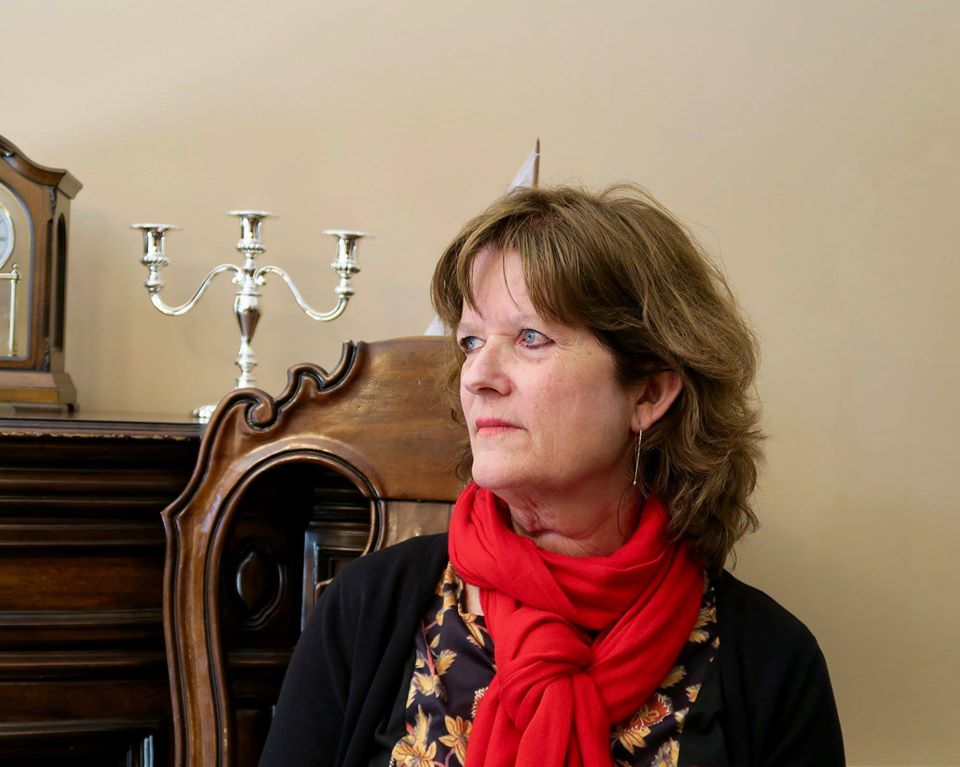
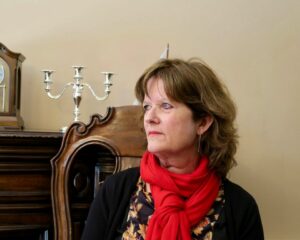
In Part One of her interview, Canadian blogger, bi-linguist and teacher Michelle Payette-Daoust bares her soul as a cancer patient. Michelle talks about how she closed her eyes to the symptoms until the condition forced itself on her, and how it has changed her life. The photos in the piece show Michelle’s family and the progress of her condition.
Leslie: How did your cancer first present itself and what were the early stages like?
Michelle: I suppose I may as well get right into the nitty-gritty in order to leave it behind as quickly as possible. My cancer narrative is one of self-neglect. My body had been sending me all kinds of suspicious signals for several years, and I ignored them. The cancer I have is colorectal—a disease that can evolve very slowly in the body (though some people are not lucky and are ravaged quickly). My original tumour is situated in the end of my colon, and so, produced symptoms that many women might confuse with chronic issues stemming from difficult childbirth experiences, or side effects of certain medications known to shut down the bowels, and I have had several such experiences during my lifetime.
So, I mostly paid no attention to the early stages and went about my very busy and demanding life. There is NO history of colorectal cancer on either side of my family tree, so I suppose I just thought I was protected. In fact, I never saw myself as someone who would get cancer (this makes no sense but I know that I am not alone in having deluded myself this way).
In the last couple of years before I was officially diagnosed, the symptoms became increasingly difficult to ignore, but I thought—as did one of my sons, Simon, who studied cancer during his postdoctoral work in Montpellier, France in 2012—that I might be afflicted with an inflammatory bowel issue, which frightened me too. Strangely, I gained weight during that period and looked swollen all over. My abdomen was distended. By early 2018, I had begun removing all kinds of foods from my diet that might be producing this inflammation…
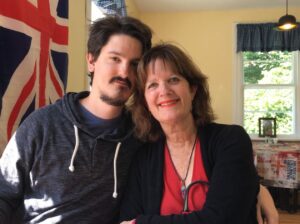
But it’s easy to lie to one’s self. I had so many things happening in my life, so many people I didn’t want to let down. My marriage of four decades was ending; I hadn’t slept more than four or five uninterrupted hours a night in years; I had teaching contracts all over the place, during the day and evening that I was committed to honouring— adult students who depended on me; a mother who had been through treatment for breast cancer and undergone two hip operations in six years…
But at the same time, I found myself doing online searches—the same ones over and over: what are the symptoms of inflammatory bowel disease? What are the symptoms of colorectal cancer? A persistent cough that won’t go away is an indication of what?
And then one day, there was that terrible moment when I hemorrhaged. And deep down, I knew. And my family doctor put in an urgent request for a colonoscopy. Urgent nevertheless meant weeks of waiting.
Leslie: As it developed, what were the large and small ways cancer changed your life?
Michelle: My cancer developed in the shadows, behind the blinders I had put on. The colonoscopy, which was done in May of 2018, took less than 10 minutes. The gastroenterologist who performed the procedure met me in her office afterward with Simon and my husband, as grim-faced as I’ve ever seen any medical professional. She said that the last part of my bowel was almost completely obstructed by a large mass and that it was likely cancer (of course it was cancer).
Most of the details of our meeting were wiped from my memory by the intensity of my emotions in that moment. My whole world fitted into the eye of a needle.
She spoke to me with a vehemence I don’t expect to ever witness again. This was very serious. This was urgent.
And then, she did something that may or may not have saved my life, but which has certainly extended it. She looked at Simon (she must have seen in his face, rather than in his father’s, a focused understanding of the situation) and said: Here is the number you must call. It is the office of Dr. Francine Richard. She is the top surgeon in gastroenterology at the CHUM [the Université de Montréal Hospital Centre]. Call her secretary, who is very good, as soon as you get home.
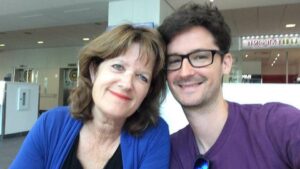
And then, just as we rose to leave, she looked at me—almost into me—and said:
Vous n’allez pas mourir de ça, Madame; vous n’allez pas en mourir. (In English: “Madam, you will not die of this; you won’t die of it.”). I’ve since come to realize how unusual that was. How personal.
Because of her choice of referral, and because of the sense of urgency that Simon acted upon as soon as we arrived home, we were in to see Dr. Richard within a week.
The moment I met Dr. Richard, I understood that somehow, I had been blessed with underserved good fortune. Again, I saw in her face the same laser-like focus I’d experienced with the gastroenterologist. I could also feel her humanity. Here was a brilliant, compassionate, kind surgeon. After examining me, Dr. Richard said that there was almost no chance that it wasn’t cancer, that it was a large mass that had been growing for a long time, but that her examination gave her every reason to believe that it was probably stage 3 (that it had not yet spread from its original site), which meant that after eight weeks of radiation treatment during the course of the summer, the mass could be surgically removed (with the possibility of a colostomy), with adjuvant chemotherapy to follow.
I was scheduled for an MRI and a CT-Scan on July 4th. I remember leaving the hospital shaken, but optimistic. Even buoyant.
What’s missing in this account is the context. All of this occurred against the backdrop of the dismantling of my life as I had known it for four decades. Because on July 5th—the day after the scans—the movers were coming to the house I had lived in since I was twenty-four years old, the only home my three sons had ever known, in a suburb of Montreal that had been my home town since I was three.
My husband of 38 years and I were separating. He was taking over Simon’s flat (just 10 minutes away), and I was moving into a house with Simon about 30 km west, off the island of Montreal—a place designed to be a long term multigenerational dwelling—and with my youngest son Christian (for as long as he needed to be with us. Jeremy, Simon’s twin, is married and the father of my grandchildren).
A few weeks later, the scan results came in and I returned to see Dr. Richard, with Simon (my husband would no longer play an intimate part in this). Within minutes of our arrival, my name was called. Not a good sign. We settled into her office, and she wasted no time. Sitting facing me, just inches away, she said (in French):
– “Mme Payette, there are surprises, and they’re not good surprises.”
And I immediately said: “It’s in my lungs?” (I had been coughing persistently for 10 months, but hoped it was caused by one of the places where I was teaching French—a metal cutting shop).
She replied: “Yes. And on your liver.”
I had stage 4 colorectal cancer.
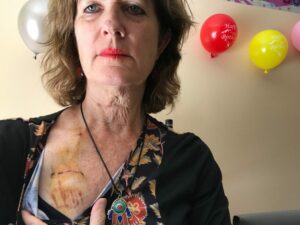
And here, for a second time, is where I believe I was given a chance at life that changed everything. Dr. Richard, who seemed to want very badly to tell me something hopeful, said:
“There is a clinical trial (in French, the term is “research protocol”, which I prefer because it’s more accurate) that I think you would be very well suited for. We just signed it two days ago. It combines traditional chemotherapy with immunotherapy—a drug called Nivolumab that has had very promising results with other cancers, but has never been tested on colorectal cancer. It is a continent-wide trial.”
And as she broke it down to Simon (who had read about it) and me, we both said YES, YES, YES, almost immediately. Eagerly. It would mean travelling 60 km every time, to the CHUM and then back again, for two years. I began the trial on August 22nd, 2018. I am now 17 months into this journey to extend my life.
How did my life change? In the summer of 2018, I left behind almost every piece of the life that was mine: my home, my marriage, my work as a teacher, and my health. People close to me have reminded me of the amount of grieving that such a sea change must surely trail in its wake. They’ve helped me to understand why I’ve felt everything that I have since then.
Leslie: How did your relationship to other people and to yourself change as a result of having cancer?
Michelle: This is a very deep question, and the most radiant dimension of the story. A cancer diagnosis as serious as mine creates a wave of change that just keeps surging.
If it weren’t for the fact that because of my cancer diagnosis, I live with death every moment of every day, I would say that it is the most freeing and wondrous thing that has ever happened to me, other than having my children. But there’s a circularity in what I’m saying because it is the fact that I now live with death every day, as only people with terminal chronic diseases do, that I have had so many freeing and wondrous experiences.
Since the moment of my diagnosis, I have been surrounded, enveloped by love—the love of my sons, my family (and all its extensions), my friends (such good friends), my former neighbours, my former students, and even the love of perfect strangers (I have experienced social media at its very best). I don’t quite understand this: deadly cancer forces such self-centredness in the person who is sick. It’s as though everything revolves around the illness. Ugh! But kind eyes, apparently, don’t see this as I do. I had underestimated the reach of compassion and empathy.
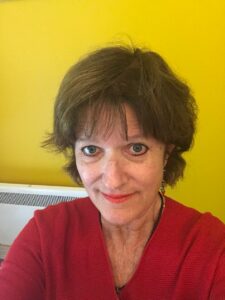
I am a much truer person now, and that makes it possible for those around me to be authentic and real as well. I don’t pussyfoot around anymore. I try to live honestly and lovingly. I don’t hide my illness. I integrate it into the conversation when it’s natural to do so. In that way, everyone in my life is learning to dance with the possibility of my imminent death. I could live five more years; maybe more… but it’s likely to be less than that. You see?
My filters are rubbish. I cry easily. Publicly. My face contorts and out come the tears. They can be caused by sadness, certainly, or pain, but often they are simply expressions of any strong feeling, including joy, tenderness, love, a reaction to beauty. My loved ones have gotten used to it. Many now feel free to join in.
Finally, I scrutinize myself much more rigorously than before. I want to die well and before I die, I want to be the best possible Michelle. I want to leave behind memories that warm the heart and make my loved ones smile (keeping in mind that these memories will endure one or two generations, and then vanish). I’ll have to work very hard at this!
Michelle’s THIS IS THE MOMENT blog series, about living with cancer, can be found here. Michelle’s blog page on Facebook can be found here.
Next week: Part Two of Michelle’s interview.
ABOUT LESLIE TATE’S BOOKS:

Part 2 of my interview with Mark Statman looks closely at Mark’s Latin American poetic influences, his life in Mexico and ends with an extract

I interviewed international poet and translator Mark Statman about Volverse/Volver, his 14th published collection. Mark, who has won national arts awards, is Emeritus Professor of Literary

I interviewed Lisa Dart, finalist in the Grolier, Aesthetica and Troubadour Poetry Prizes and author of The Linguistics of Light (poems, Salt, 2008), Fathom (prose

I interviewed writer Julia Lee Barclay-Morton about her experience of autism. Julia began as an experimental dramatist in New York, moving to the UK to

I interviewed Gillean McDougall from Glasgow, who edited the collaborative projects Honest Error (on Charles Rennie Mackintosh and his wife Margaret Macdonald) and Writing the
| Cookie | Duration | Description |
|---|---|---|
| cookielawinfo-checkbox-analytics | 11 months | This cookie is set by GDPR Cookie Consent plugin. The cookie is used to store the user consent for the cookies in the category "Analytics". |
| cookielawinfo-checkbox-functional | 11 months | The cookie is set by GDPR cookie consent to record the user consent for the cookies in the category "Functional". |
| cookielawinfo-checkbox-necessary | 11 months | This cookie is set by GDPR Cookie Consent plugin. The cookies is used to store the user consent for the cookies in the category "Necessary". |
| cookielawinfo-checkbox-others | 11 months | This cookie is set by GDPR Cookie Consent plugin. The cookie is used to store the user consent for the cookies in the category "Other. |
| cookielawinfo-checkbox-performance | 11 months | This cookie is set by GDPR Cookie Consent plugin. The cookie is used to store the user consent for the cookies in the category "Performance". |
| viewed_cookie_policy | 11 months | The cookie is set by the GDPR Cookie Consent plugin and is used to store whether or not user has consented to the use of cookies. It does not store any personal data. |
9 responses
A wonderful woman and a true survivor.
Thank you Adele, for your kindness.
What an incredible woman…who, absolutely, deserves to prosper and live as long as possible. And thank Mother Nature for her sons, family and the wonderful doctors. I don’t pray, but Michelle has my heartfelt wishes for a complete recovery. Love and peace.
Dear Joy, you are perceptive and generous of heart and I deeply appreciate your kind wishes. Thank you!
Thanks to Michelle for sharing her experience, not only with us but with so many others. I look forward to the second part and hope it can help many. Keep strong. Thanks, Leslie.
Thank you so much Olga. I’m touched by your warm heart and shall try my best to keep strong.xo
For Leslie:
“Life and death are day and night.
You and I came to watch the process of change, and now change has caught up with me.
Why would I have anything to resent?”
– Zhuangzi
Anyone who reads this honest and deeply powerful interview knows or should know that Michelle is also an amazingly gifted writer. And it’s because of this talent that she’s been able to put into words what most of us would be unable to do in similar circumstances, and share her experience with her grateful readers. Thank you, Leslie, for giving Michelle a voice in this interview that will no doubt reach even more equally grateful readers. I have no doubt that this is invaluable to anyone who is on a similar journey. But more than this, this interview and her blog are also invaluable to those of us who live nearby or are separated from her because of geography. Both give us the ability to remain in the loop of her life and feel connected to her when we might despair at not being able to be there for and with her. I’m one of those people. Her older sister, who lives on the other coast of our country, and who is grateful to have her in my life, and even more grateful that she is such a gutsy, real, no BS kinda woman who just happens to be a brilliant linguist and writer, a role model and inspiration, and someone who has taught so many of us about cancer but more importantly about life, especially about what matters. She is one of the most authentic and loving people I know. And she is loved. Thank you for posting this interview and for inviting us into your life in such an open and beautiful way Michelle. Will await the second part of this interview and, as always, keep your uppermost in my mind each and every day. xo
Dear Marie,
Yikes! I hope to live long enough to earn such praise.
Consider yourself hugged and loved and appreciated beyond anything I could fit into this comment. Merci xoxoxo